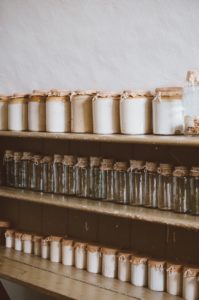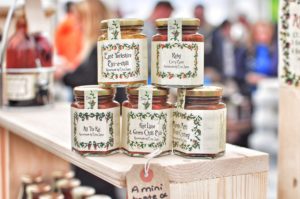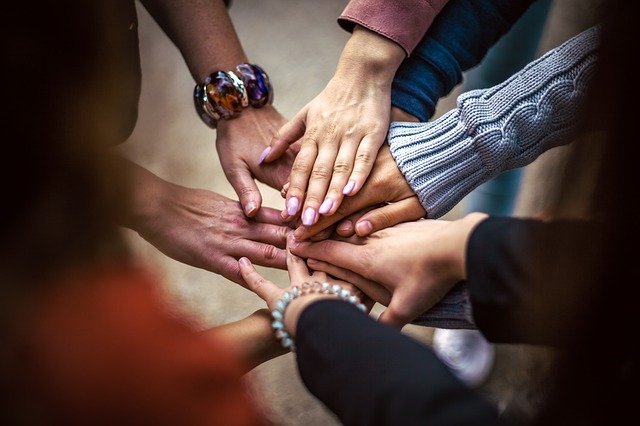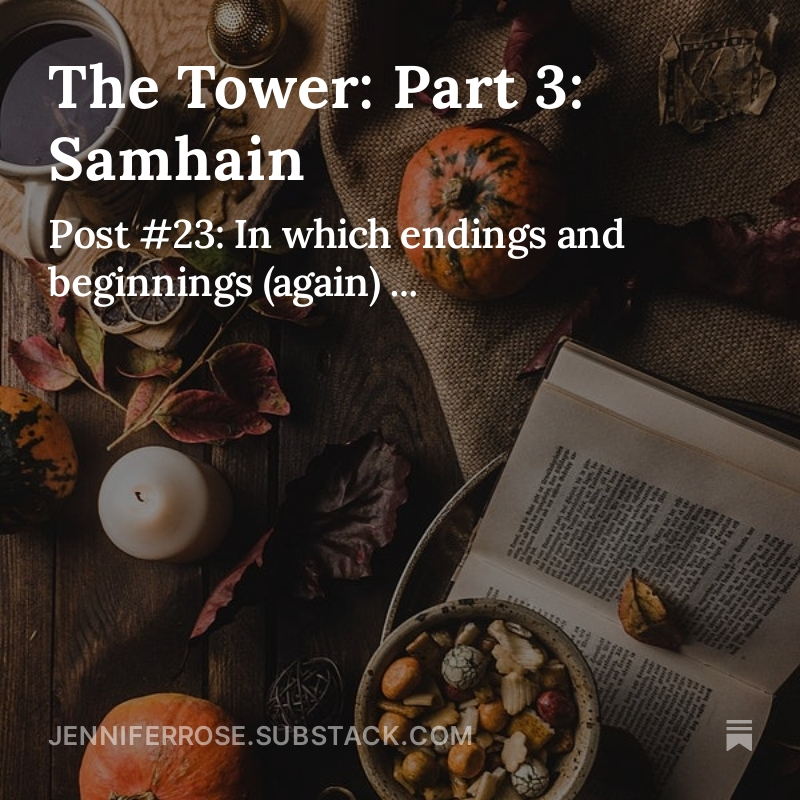by Jenny Rose | Sep 15, 2016 | Power
Since I began this blog I’ve wanted to write about boundaries, not only because I myself am trying to develop better ones, but also because it seems to me boundaries are a large part of what’s broken in our culture.
We’re all aware of headlines from all over the world about human rights, ethnic and racial struggle, politics, sexual identity, religion and war. It seems to me boundaries are a core piece in each headline; an enormously complex piece of human function and dysfunction. How do we define, understand and effectively manage boundaries — both our own and those of others? How do we manage people who consistently violate our boundaries?
Trying to organize my thoughts about this is like trying to herd cats. That being said, I can choose a starting point, so I’m going to start there and see if the subject organizes itself as I write.
I approach most subjects with a definition and curiosity about what others are saying about it. A Google search for “boundary” tells me it’s a “dividing line.”
I’ve read two articles recently about boundaries. One is written from an emotional intelligence perspective and one is about human rights, kind of a sidewise look at boundaries through the idea of respect. Both have contributed to my mental soup on this subject.
My experience is that any piece of human function or dysfunction begins with myself. Self-reflection and self-inquiry are powerful tools for me, even though I occasionally wince at what I find!

Photo by Annie Spratt on Unsplash
So, let’s play a game. Open your refrigerator, or your pantry, or your cupboard. Look at a shelf where you keep food. Everything is in a container. The container around the food is a boundary. If none of that food had boundaries around it — well, that would just be a mess.
As we start thinking about boundaries from ourselves outward, let’s take a jar of strawberry jam. It’s a glass jar with a screw top lid and it’s clearly labeled strawberry jam. Effective boundaries, it seems to me, begin with a correct identification of what’s being contained. We have to know who we are before we can create healthy boundaries, because our boundaries won’t look like someone else’s. They’re not one size fits all. You can’t keep strawberry jam in an eggshell. You don’t want raw eggs in a jar labeled strawberry jam. A can with the label torn off could still be food, but it’s hard to use it effectively.
Mislabeling happens in two directions. There are those externally who tell us who we will, should or must be (or who we will, should or must NOT be), and there are our own internal expectations of who we are and what we need. If something goes wrong right here, at the first step of boundary work, we’ve got problems.
This takes us directly back to several dynamics I’ve posted about — expectations, stories, saying yes and no, and pleasing people among them. My experience in my own western middle-class culture has been painful pressure to be who I’m expected to be, not who I really am. If this can happen to me, a straight, white, average-looking, average-sized, able-bodied, unambiguous female, then I know hundreds of thousands of people out there are being systematically emotionally and spiritually maimed in ways I can’t begin to fathom.
This opposition to knowing and being ourselves is everywhere. Capitalism is based on the idea you’re not okay as you are, but you will be if you buy…whatever it is.

Photo by Viktor Forgacs on Unsplash
I’m strawberry jam. I’m not grape jelly, even though it’s more valuable. I’m not blackberry jam, even though it’s more attractive. I’m not raspberry jam, even though it’s more popular. Go ahead, glue a label on me that says “currant jelly.” I’m still going to be strawberry jam, and my true boundaries are a glass jar with a screw top lid and a label that says strawberry jam.
As cruel as it is, the external pressure we feel to be other than we are is not the most damaging thing. The most damaging piece is what we do internally to ourselves. I can spend my whole life with my fingers in my ears and my eyes squinched shut saying I’m peanut butter, but I’ll always be strawberry jam. Other people will know it. I’ll know it. Nothing will ever work for me because I’m in the world trying to be something I’m not. I won’t find my people. I won’t find my place. I won’t figure out and make my contribution. I won’t have effective boundaries. I won’t be happy.
Not only that, but my inability to manage and maintain effective boundaries affects everyone around me. If my jar is cracked or broken, strawberry jam is going to ooze out onto the shelf. It’ll make a mess. It’ll attract pests and predators. It’ll be wasted and it will impoverish the peanut butter, the toast, the butter and whatever else might have connected with me as strawberry jam.

Photo by Jonathan Pielmayer on Unsplash
In order to have healthy boundaries we have to know what we need. In order to know what we need we have to know who we are. Finding out who we are can be a terrifying prospect, especially if we’re captive to what other people, media, our culture, and most of all ourselves tell us we MUST be in order to get loved and find happiness, meaning and purpose.
I have made up my mind I will build better boundaries. I will figure this out. If anybody out there will walk beside me, I’ll be very pleased. I know I’m not the only one struggling with this. In fact, I don’t know anyone who doesn’t have trouble with some piece of it.
My starting point is right here, with myself. I’m strawberry jam and my boundaries are a glass jar and a screw top lid. My label says strawberry jam. I’ve no interest in forcing, persuading or coercing anyone else to be strawberry jam. I just know what I am. It might be that strawberry jam is outlawed, shunned, shamed, beheaded, tortured, raped, imprisoned, damned to Hell, unsaved, unenlightened, unlovable, unwanted, unworthy or lined up against a stone wall and shot under a hot sun. I’ll still be strawberry jam. I’m not confused and I’m not going to feel ashamed about it.
Peanut butter and strawberry jam sandwich, anyone?
All content on this site ©2016
Jennifer Rose
except where otherwise noted
by Jenny Rose | Sep 22, 2016 | Power
This is the second of I’m not sure how many posts about boundaries. See last week’s post for the beginning of the discussion!
Today the aspect of boundaries I want to explore is the one I have the most trouble with. This aspect concerns managing boundaries with people we love.
Continuing with our metaphor of food on a shelf, last week I was comfortable with my identity of strawberry jam. I know who I am, I’m in an intact container (most of the time) and I intend to be labeled accurately and effectively. That’s all INTRApersonal start-where-you-are work.
However, there’s other food on the shelf. The universe doesn’t revolve around strawberry jam, alas! In fact, next to me is a jar of dill pickles.

Photo by Viktor Forgacs on Unsplash
We’ve been together as long as I can remember, sitting side by side on the shelf. We’ve watched other food in other containers come and go. The eggs in particular have quite the turnover rate. We’re companions, friends, and in fact it’s not an exaggeration to say I love Pickles.
But one day I notice something has changed. The clear green juice in the jar with floating bits of herbs and spices is getting cloudy. And is that — could it possibly be — grey fur along one side of a pickle?
Disaster. Catastrophe. It can’t be true. My beloved Pickles is beginning to grow fur. Everybody on the shelf knows what this means. Sooner or later, the refrigerator/cupboard/shelf Gods will cull Pickles. Gone forever.
I can’t imagine my life without Pickles.
Naturally, I want to help. No kind of food could possibly want to wear grey fur. There must be something I can do.
If I love Pickles, I must be able to fix this.
If I really, truly love Pickles, and my love is real and unselfish and unconditional (and Pickles is worth that kind of love), there’s a way for my love to fix this.
If I fail to fix this, my love is at fault.
That, ladies and gentlemen, eggs and bacon, is where I lose my boundaries. It’s all very clear and self-evident when it’s laid out in black type on the page, or in this case, screen. Love can’t fix everything. Love isn’t always enough. Sometimes we can’t “help” other people. Bad things happen to good people all the time. Loss is part of love. Right?
My brain understands this. My brain functions pretty well. My brain is not the problem. It’s my heart, my emotions, my stories, my beliefs and my expectations that are unruly and stubborn.

Photo by juan pablo rodriguez on Unsplash
Perhaps I haven’t explained it well, my connection with Pickles. I know him better than anyone. I understand him. He’s the most important person in my life. He’s part of who I am. If I lose him, I’ll lose part of myself. I thought nothing could ever part us, or damage our respect and trust in one another. In fact, we’re so close we don’t need boundaries.
(Naturally, he feels the same way about me. He doesn’t say so, but one doesn’t expect pickles to emote like strawberry jam.)
Loving fully and unconditionally means no boundaries, right? Isn’t that what we learn? If we love unselfishly, completely, without reservation, then boundaries are unnecessary and we can count on getting that same kind of love in return. Loving well equals being well loved. Isn’t that the way it works? Only a selfish bitch maintains boundaries, an unloving, cold woman, a ball breaker. Only an indifferent, unfit mother maintains boundaries between herself and her children. Only a judgmental, critical, power-hungry female protects herself with boundaries. Generous, attractive, truly loving people have no need of boundaries. They don’t count the cost. They always say yes. They give freely of their resources to whoever is in need without expectations or strings attached. They never keep score. They have no needs, these lucky, healthy, beautiful, abundant people. They feed and nurture the world.

Photo by Jordan Whitt on Unsplash
Boy, does this world need people like that. That’s the kind of woman/friend/mate/mother/daughter/sister I want to be. If I want to save Pickles, that’s the kind of person I have to be.
Here’s the thing.
I can’t be that. I’m not sure anyone can be that.
I’m not talking about ideology here. I’m not qualified for or interested in religious debate. What I’m saying is I can’t be a bottomless, endless nurturer and giver with no needs, and I’m not convinced anyone else can, either. I know some who say they can, pretend they can and/or expect others to be, but I’ve never met anyone who really lives like that — at least not long term. Not successfully and not happily, anyway.
But aren’t we supposed to?
Did I learn this wrong? Did I misunderstand? I can’t point to any one person who taught me this, after all. Did I make it all up? Or, alternatively, am I not the woman I think I am and aspire to be? Am I small, mean, petty, hypocritical and selfish? Am I unable to love the right way? Am I a fraud? Am I self-deluded?
Why am I in such chronic painful confusion about something my intellect sees so clearly? Why does it seem that managing boundaries INTERpersonally carries such a negative connotation? Why can’t I reconcile loving someone with all my heart with effective, appropriate boundaries between that person and me? What is the source of this cognitive dissonance?
Which is more devastating — people who have no boundaries themselves and bitterly resent mine, or people who maintain boundaries between us when I have none?
In the first case I feel trapped, resentful and intruded upon, and in the second I feel hideously rejected, unappreciated and used. Neither feel like healthy connection, but I call both love.
So here I am, side by side with Pickles on the shelf. We look at each other through the glass sides of our boundaries. I want to climb inside his container and take him in my arms, love him back into clear green juicy health, but if I do that I’ll start growing gray fur myself, and I know I can’t fix him at the same time I believe I should be able to. I want to run away, turn away, not know what’s happening, but I can’t.
There’s nothing I can do. My love is not enough. Grey fur is creeping over Pickles and I can’t avoid it, flee it or stop it. I can only wait and watch and sit here in my container, while Pickles sits in his.
RIP, Pickles.
All content on this site ©2016
Jennifer Rose
except where otherwise noted
by Jenny Rose | Aug 3, 2024 | Connection & Community, Emotional Intelligence
I received some second-hand feedback regarding my last post that’s had me thinking further about this idea of taking one’s own breath away.
We exist as individuals, and we also exist in relationship to others, and not only with our own species. In fact, as I reread the last statement, I realize it doesn’t quite reflect reality. We think of ourselves as discrete, separate individuals. “I.” “Me.” Yet it would be more accurate to say “we” and “us,” for we are each a world of microorganisms, internally and externally. Without all these bacteria, fungi, and other tiny organisms we couldn’t live. They facilitate everything from our digestion to our skin and mucous membrane health.

Photo by Helena Lopes on Unsplash
The point remains; however, we are each a part of ever-enlarging communities, from micro to macro. Oxford Online Dictionary defines ‘community’ as a group living in the same place or having specific characteristic(s) in common. A second definition is a “feeling of fellowship” with others because of common values, goals, and beliefs.
Community, in other words, is a fundamental human experience and shapes us in myriad ways. We are a social species; we need one another. I’ve been fighting with that reality all my life.
I believe much of our journey in life is about managing the continuum between narcissism (grandiose sense of self-importance, lack of empathy for others, need for excessive admiration, belief that one is deserving of special treatment) and echoism (a fear-driven compulsion to prioritize others’ needs).
That unwieldy balance necessarily takes place within the inescapable context of community.
It’s complicated.
We all know communities vary. Most of us acknowledge being part of several communities. Often our identities are inextricably bound with community membership, in the case of religion or family, for example. These bonds are very strong.
As I think about and participate in communities, I think about health. Am I healthy enough to function effectively and appropriately in my community? Is my community a healthy place for me?
Community is both a mirror and a crucible. Communities formed as social bubbles and echo chambers can be deeply comforting and validating. Everyone is like us. Everyone believes what we believe. We experience no discomfort or friction. We’re assured of our rightness, our clarity, our moral ground. We know the Truth. We never have to reconsider, find out we’re wrong, grow, learn new things, or change. We stand on solid ground and look into mirrors reflecting us exactly as we want to be seen.
Communities formed as crucibles, such as work, volunteer groups or neighborhood groups, are not so comfortable. In these communities we will experience conflict and friction. Everyone does not share our values and beliefs. Because everyone is not the same, we get glimpses of parts of ourselves we’d rather not see or have seen by others. We can’t hide our flaws and weaknesses, mistakes and missteps. We receive various kinds of feedback. We feel defensive, exposed, ashamed.

Photo by Cristian Newman on Unsplash
Crucibles are cradles for alchemy and change. They trigger our old traumas and shames without notice. They bring us face to face with ourselves and relentlessly demonstrate the effect of our behavior on others.
I observe that people who primarily interact in mirror communities are often black and white in their thinking. You’re for us or against us. You’re Us or you’re Them.
This kind of thinking strikes me as silly and unintelligent. The older I get, the more shades of grey I discover. Accepting shades of grey, however, is a lot more interpersonal and personal work than black or white labels. Shades of grey mean we have to think carefully about what we value and believe and why. We might have to defend our views. We might ask or be asked uncomfortable questions. Others might become annoyed, offended, or hurt by our position. People might try to make us small and silent, or fit us into a box so they can feel more comfortable with us.
We might let them.
I have often let them. And that’s about my own health. Healthy crucible communities empower rather than disempower; empowerment brings responsibility. A responsibility to be the healthiest and most whole person I can be. A responsibility to practice tolerance and respect towards myself and everyone around me. That means I’m responsible for my boundaries, my integrity, and my resilience.
The health of individuals in the community directly correlates to the health of the community itself; I don’t want to be the limiting factor in any community I’m a part of.
Striving for increased health and wholeness is a practice rather than a destination. Some days I feel like a shattered mess that can never be mended or healed. Other days I feel like a good-enough person, or maybe even a little better than that. I care about the people around me. My challenge is to care about myself equally, to hold my needs as important as those of others, to attend to my own well-being before becoming absorbed in caring for others. I don’t believe this makes me a narcissist, but it does move me away from echoism. People who view my behavior as narcissistic have perhaps benefited from those who, like me, have poured themselves out into others with no thought or responsibility for themselves.

Image by Bob Dmyt from Pixabay
I am fortunate to have a true healthy community; the first I’ve ever participated in with any degree of authenticity and vulnerability. My greatest fears have been realized, more than once. I am seen a great deal more clearly than I wish to be. I am cared about, a very uncomfortable state of affairs. When I make mistakes or my judgment is poor, everyone sees, everyone knows, and it feels disastrous. I am frequently uncomfortable because some of my belief systems and lifestyle choices are different from those around me.
The same is true for everyone in my community. We see each other, and we make room for each other with affection, humor, and occasional irritation that only underlines our caring.
I’m not embedded in a mirror, but in a crucible, and I wouldn’t choose differently. As uncomfortable (terrifying) and messy and even humiliating as it sometimes is, my interaction in my community is making me a better person in every possible way; I see myself in a community context in ways I never would alone or in a mirror community. My community expands my humility, forces me to become more resilient, pushes my boundaries, and teaches me that what really matters is friendship and respect, not lifestyle choices and differing belief systems.
Every day I take things I’ve learned in my community and turn them over, sometimes cry over them, figure out how to grow and change and be more effective. I do it for me … and for them. I do it because it’s a challenge, it’s fascinating, it’s growthful, and I don’t want to be part of a mirror community. I like diversity, as uncomfortable as it can be. Diversity makes me bigger and wiser.
The phrase “the public eye” is so amorphous as to be useless. I’m not concerned with what the stranger on the street thinks of me, if indeed they spare a thought for me at all. But I do care what my community thinks of me, because I know I’m valued for myself, imperfect and weird as I am. I trust them enough to allow them to help me grow. I don’t feel pressured to be like any one of them; rather the pressure is to be the best version of myself possible, which is exactly what I want for them.
The best versions of myself take my own breath away now and then, the root of my last post.
Healthy community is absolutely essential for all of us, in my view. So is the ability to self-reflect and accept ourselves with love and grace. I want to respond to those around me with tolerance and respect, and I learn to do that best as I practice tolerance and respect with myself. As I see myself more clearly and kindly, I see others more clearly and kindly. As I foster my own growth and change, I can better foster the growth and change of those around me.
Healthy communities depend on healthy individuals, or at least communities committed to health need individuals committed to their own health. That’s what works. Neither echoism nor narcissism build health or growth of any kind for anyone.
Questions:
- Name three communities you feel a part of. Is each one more of a mirror or a crucible?
- Which of your communities feels most healthy? Least healthy?
- What do you find hardest about being in community?
Leave a comment below!
To read my fiction, serially published free every week, go here: 
by Jenny Rose | Jun 22, 2024 | Emotional Intelligence, Needs
In a recent conversation, someone asserted to me that ultimately everyone does what they want. I felt an immediate fury. That does not describe my life at all. I chewed on my outrage and resentment for a few weeks, simmering, until I decided to get over it and figure out why I was so hijacked.
I was immediately lost in the puckerbrush. Making choices about what we do and don’t do is intimately tied to needs and wants, and I have yet to be able to distinguish between the two once beyond the level of survival needs, or find any kind of clarity from someone else. Needs and wants are unpleasant territory I don’t want to explore. (See? There it is. I don’t want to. Yet I am, and I might need to.)

Photo by Bryan Minear on Unsplash
Then there’s the whole actions versus words aspect. People say they want things but don’t act accordingly. If we really want something, our behavior reflects it. If our behavior does not reflect our stated wants, we’re deceiving ourselves, or someone else, or both. I deeply distrust mixed messages. More unpleasant territory and old trauma.
Choice is in there, too. Choice is a big subject and a major theme in this blog. As I’ve mused on the statement ‘we all do what we want to do’ and made notes (you know I always make notes), I’ve wondered how we can compare a parent in some war-torn place attempting to keep their starving child alive another day with a wealthy person trying to decide if they want to fly their private plane to Paris for dinner or stay in and watch a movie in their in-home theater and have their chef prepare a seven-course meal. With wine, naturally.
One person has limited choices, all excruciating, to achieve continued survival for a few hours. The other has almost unlimited choices, all luxuries. How can I possibly compare the two? Can we say the parent trying to keep their child alive is doing what they want to do? Come on! Yet they do want to keep their child alive, right?
Perhaps it seems complicated and confusing because it’s complicated and confusing.
I wound up with a page full of notes, some sobering personal revelations, and a hairball.
On an internet search, I found articles pointing out the distinction between doing exactly what we want to do in any given moment (a toddler or a hedonist) and doing things we don’t want to do in service to an outcome we do want. That made sense to me.
If we focus on wanted outcomes rather than individual actions, we must have the ability to plan, look ahead, anticipate, and understand possible consequences of our actions. We also must attempt to predict the responses and reactions of the people around us to our actions, which means we have to understand something about emotional intelligence …

Photo by Manuel Sardo on Unsplash
… and now we’re back in the puckerbrush. I hate predictions. I don’t like leaps of faith. (I have a magnet on my fridge that says “Leap and the net will appear.” I don’t know why I keep it. It makes me mad every time I read it. Show me the warranty on that net. Show me the weight testing. Show me the damn net, in fact. Who will set it up when I leap? Are they paying attention or looking at their phone?) I trust my intuition, but I know I can be wrong. People are unpredictable. Life is unpredictable.
And yet we humans, including me, make choices all day long every day based on what we think will or might or could happen next. I’ve written about attachment to outcomes before. As I get older I’ve replaced a lot of my desired specific outcomes with simply wanting to know I did my best, regardless of outcomes. I may not like the outcome I get, but my integrity remains intact.
And then there are the people who don’t seem to understand actions and consequences in any kind of relationship. They choose what they choose in the moment and are hurt and/or outraged to discover the downstream consequences of that choice, especially in the context of many other choices. I observe this is a frequent divide along male/female lines. Women generally see everything as connected. Men generally see most things as discrete, in their own box. This is just one reason why I think “romantic” male/female relationships can be so devastating. We are often on different pages without knowing it.
If it’s true that we all do what we want in service to a desired outcome, what happens when my choices collide with yours? If you perceive me as blocking progress to your desired outcome you’re going to feel angry, and vice versa. We’re going to want each other to make different choices aligning with our personal desires. Most of the time, people won’t do that. We’re all attached to the outcomes we want.
A big piece of this for me is emotional labor, that hidden torrent winding through my life, sweeping away incalculable energy, time, and innocence. One of my priorities is healthy relationships. Close healthy relationships require time and attention; the ability to make choices for the good of the relationship rather than considering only our own wants and needs. This is an ongoing practice, not doing something we really don’t want to do once every six months and expecting applause. It means we have to face our own demons, learn to communicate clearly and honestly, negotiate, share power, and problem solve. It means boundaries and respect. It means reciprocity.
Having learned about reciprocity, I now prioritize my relationships to the degree the other does. I will not sign up to do all the emotional labor. I’m not interested in a close relationship like that. The price is too high. I’d rather put my energy into my relationship with myself. At least I appreciate my own efforts!
My conclusion about this ‘we all do what we want’ thing (gritted teeth – it still makes me mad), is it may be true if we consider our choices in the context of outcomes. I’ve made a lot of choices out of the clear knowledge that they were simply the right thing to do, too, choices that have been terrible for me, terrible in some of their consequences, yet ultimately still were the right thing for me to do. I had no outcome in mind. I don’t regret those kinds of choices, but they left permanent scars.

Photo by Cristian Newman on Unsplash
I want to blame others for all the time I’ve spent doing things I didn’t want to do, but it seems what we do and don’t do are entirely in our own hands, our own responsibility. Our lives are built on the choices we make, big and small, every hour of every day. If we don’t like our lives, we need to pay attention. Perhaps the useful question to ask ourselves if we hate what we’re doing at any given moment is, “Why am I doing this?” If we’re focused on a particular desired outcome, we may need to stop and think about whether our actions are effective in getting us there. Spending years of our lives desperately hoping and trying to reach an outcome and doing things we hate is not effective. I know this from personal experience. Our wants and needs change over time; what we once longed for may no longer be something we’re interested in. Sometimes we need to reality check ourselves. If we’ve been trying to get loved, for example, or please someone for a long period of time, it might be time to acknowledge our goal is not attainable or not worth attaining. Sometimes no matter how hard we work for an outcome it’s not achievable.
Then there’s the flip side: None of us do what we don’t want to do. That one is equally hard for me to swallow, but that’s a conversation for another day.
Questions:
- How much of each day do you spend doing things you don’t want to do? Why?
- What desired outcome(s) in your life requires you to do things you don’t want to do?
- Do you see your daily choices as isolated or part of a larger context attached to your wants and needs?
- Do you feel forced to labor emotionally? What would happen if you stopped?
- Who in your life reciprocates your level of emotional labor?
Leave a comment below!
To read my fiction, serially published free every week, go here: 
by Jenny Rose | Jun 8, 2024 | Connection & Community, Emotional Intelligence
My work team and I are always on the lookout for new ways to work with our pool patrons. We look for new moves and songs for water exercise classes and new ideas for working with swim lesson kids. 
A few weeks ago, a team member remembered an old book she’d seen titled The New Games Book. She remembered it as a resource for non-competitive games focused on play and teamwork rather than winning and losing, and we wondered if we could adapt some of the games to the water. I was interested, as I’m notoriously noncompetitive, to the point where a competition of any kind feels traumatic. Fortunately, we have a local librarian as a pool patron; she found a copy of the book. The copyright is 1976. The Dark Ages.
It is indeed filled with a variety of games, as well as black-and-white photos of people playing.
People playing. People in parks and other common outdoor areas, people of all ages, laughing, smiling, playing, and … touching. Dogs, too. It was like looking at a different world. I paged through the book, marveling, feeling sad about how much we seem to have lost. In the end, we concluded we couldn’t adapt any of the games to the water because they all involve touching.
We can’t adapt noncompetitive, team and community-building games for kids from this book because they all involve touching. It seems unbelievable.
I don’t blame the pandemic. It didn’t help matters, for sure, but social physical contact began to diminish before that. We’ve been gradually turning away from each other to look at screens for decades now, and as that’s happened social touch has become vilified.
When was the last time you went to the park to walk your dog (or just yourself), maybe with your kid(s), your mate, or a friend, met other people from your neighborhood there, and you all (dogs, too) played a silly game, or even something like frisbee?

Photo by Helena Lopes on Unsplash
Yeah. Me, too.
People play video games online together. My sons do that, one in Colorado and one in Montana. They’ve been doing it for years, even when they both lived in Colorado and could have gone to the park together.
Culturally speaking, we’ve never dealt well with touch. How could we in the context of patriarchy and rape culture? I’ve been raped, and I’ve been hit. I knew it wasn’t okay for a man to hit me, but at least it was some kind of touch. Believe me, I know how terrible that sounds, but I have always been so skin hungry because of infancy and childhood touch deprivation, even getting hit was better than no touch at all. It made me feel real. Blood and bruising are real. It made me feel alive – for a moment.
Can any of us be fully healthy without appropriate social touch? I know I can’t.
I have several friends who are uncomfortable with touch. Two were raised in the Catholic church, a fine patriarchal and shame-based system. One was sexually abused as a child.
Social touch is so complicated. How do we mandate appropriate touch? What do we do with adults who believe nonconsensual sexual contact with children is healthy and natural? How do we address boundaries, self-respect, sexuality, and family planning? What do we do about rape? How do we protect children whose parents believe physical abuse is the best way to discipline them? How do we know when it’s safe to touch someone and when it’s not? How do we incorporate the idea of consent back into our lives?
Now AI looms over us. Every day I read predictions about its influence, about those who are experimenting with it. I hear from people who predict AI is the end of all creative culture and people who believe it will support and nourish creativity.
One thing I know: No technological immersive experience, no matter how well crafted or engineered, can replace living, breathing physical interaction. Physical intimacy (not just talking about sex) is sensual – it involves all our senses, including the marvelous, taken-for-granted organ we call our skin. Human physicality is not a sterile algorithm. It’s not a porn film. It’s not filtered, airbrushed, photoshopped. A human being is a mass of contradictions, of scents, sounds, and textures. We’re unpredictable. We’re illogical. We’re beautiful and hideous, sacred and profane. Interacting in healthy, useful ways with other humans is challenging, offensive, and often dangerous. Also hilarious, fascinating and, increasingly, necessary if we want to survive. Human relationships are not fairytales, rom coms, TikTok videos, or roleplaying games.

Photo by Liane Metzler on Unsplash
I don’t believe we can make a substitute for human touch. Our bodies and perhaps our souls cannot thrive without it. Yet we are steadily eroding our ability to exchange or even recognize healthy touch, to the extent that the documented behavior of one of our most powerful political influencers is a clear demonstration of rape culture in action, and his followers, many in the top tiers of power, either don’t care or actively support his misogyny.
Touch, like climate, like food, like political systems, is unbelievably complex. At the same time, we must have a planet that supports our physical needs, we must eat to live, and unless we’re the last person on the planet we must figure out how to make decisions with others. If we don’t do those things, our species will die. Life and death as a binary are not complex at all.
If we lose touch, how much meaning, pleasure, and health will we lose from our lives? As our ability and willingness to exchange appropriate touch diminishes, are we healthier and better connected or increasingly divided and unhealthy? Note the present mental health crisis among young people. Most agree enforced isolation during the pandemic did not support our social needs, especially the health and development of children. At the same time, we deliberately and cheerfully offer ourselves every day to technology that actively and purposefully isolates us from living, breathing, face-to-face interaction with the physical world and other people without even noticing.
When I try to imagine a world without the feel of my cats, the earth and plants outside my window, supple bread dough rising in its greased bowl, the laptop keys under my fingers, a cup of hot tea between my hands, cool water against my body as I swim, the energetic little bodies of children I teach to swim, and all the other countless things I touch each day, I can’t. I don’t want to. My brain might be fooled by an immersive AI experience, but it’s hard to believe my body could ever be nourished and satisfied by one.
As I was thinking about this post, I came across an essay from a poet I follow on Substack, Anagha Smrithi, titled “In the Age of AI, Poetry Matters More Than Ever.” In it, she wrote:
“Our hands need something to hold onto. Our fingers need something to touch.”
I’m glad it’s not just me who values touch.
Questions:
- How do you feel overall about human touch?
- Who in your life are you able to exchange healthy touch with?
- Do you prefer your social life to be online or in person?
- What’s a favorite tactile sensation or texture?
Leave a comment below!
To read my fiction, serially published free every week, go here: 














